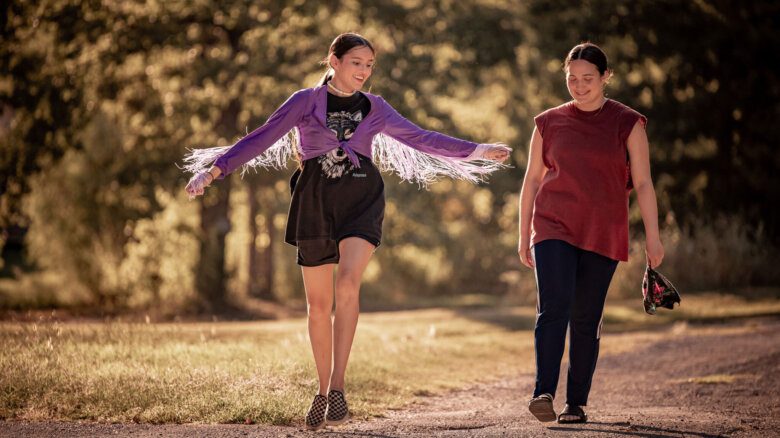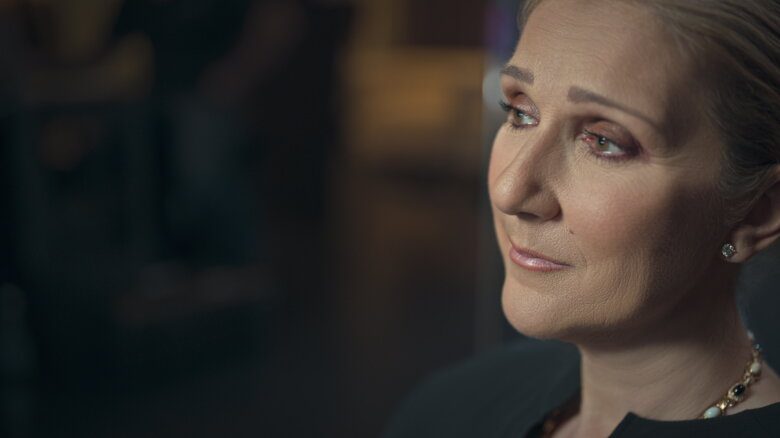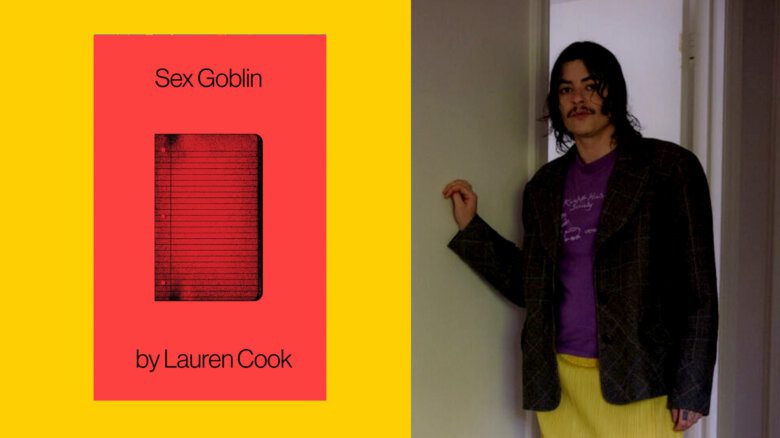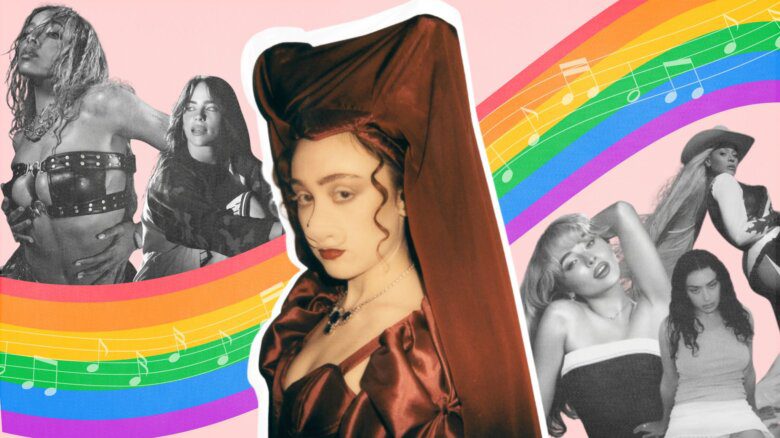A woman is onscreen with a guitar, bathed in pink light, wearing a zebra-striped miniskirt while she sings in a sweet lilt that “dreams are stupid, and so are you for believing in them, and all who wander are totally fucking lost.” In spite of what should be the comfortable anonymity of my movie theatre recliner, I feel called out—and also charmed, indignant, amused, depressed, a tiny bit turned on and oddly, unexpectedly hopeful. In essence, I’m already caught in the storm of emotions evoked by Cora Bora, ostensibly a comedy, but really a meditation on bisexual messiness, “bad” mourning and balancing on the delicate precipice of being too much.
The movie, written by Rhianon Jones (producer of Shiva Baby) and directed by Hannah Pearl Utt (Ingrid Goes West), stars Meg Stalter (Hacks), Jojo T. Gibbs (Twenties), Ayden Mayeri (I Love That for You) (and features a veritable smorgasbord of other surprise favourites, including Manny Jacinto, Chelsea Peretti, Margaret Cho, Caitlin Reilly and Heather Elizabeth Morris). We meet Cora (Stalter), a stubbornly lovable trainwreck in her early 30s, as she is spinning out: repeatedly turning down an adorably earnest Manny Jacinto (who plays Tom), nearly having an orgy with a probable cult from a dating app and losing her own dog while getting stoned with a bunch of high schoolers. Everything comes to a head when Cora realizes her sweet, steadfast, long-term girlfriend Justine (Gibbs) may be getting serious with someone new (Mayeri)—and that the open, long-distance relationship she has been convincing herself is going just fine may actually be on the rocks.
I spoke with Meg Stalter, Jojo T. Gibbs and Ayden Mayeri about the dubious polyamory of Cora Bora, and how they created chemistry with their characters.
The love triangle in Cora Bora emerges from an open relationship, making it a bit more modern than a typical rom-com. Did you guys draw on anything specific—The Ultimatum: Queer Love, your own ultimatums and queer loves, etc.—to create this dynamic?
Meg Stalter: I definitely thought a lot about early-on relationships. When you’re young, you end up in something you know is not serving you, but you love them. I was never in a poly relationship, but I definitely had a weird boyfriend who, like, dated different girls, but always acted like we should be together—things I would never, ever do now. In Cora Bora, it’s not a functioning poly relationship, it’s two people that should definitely be broken up. And once they do [break up], I’m sure neither of them would be in poly relationships [again], with their personalities.
Jojo T. Gibbs: I thought it was an interesting perspective because I couldn’t handle it. I don’t share. Even with just dating, just getting to know people, if I find out you like somebody else, I’m like, “They can have you! How could you?” The concept of being in an open, long-distance relationship was intriguing to me because you’ve got to be two very understanding people and have a lot of regard for each other. I think that’s becoming more of a prevalent thing that people are discussing [in broader culture], so this was a cool opportunity to show it in the lesbian community. And with Cora and Justine, you can tell it’s more like a friendship that they don’t want to completely let go. Justine doesn’t want to say, “Let’s be friends” because then that might mess Cora up emotionally, so instead it’s, “Let’s be long … distance … and poly.”
Ayden Mayeri: I think it requires a lot of rigorous communication and maturity, and I don’t know that our characters totally have that figured out at this point in their lives. Though Justine’s pretty cool!
Gibbs: She’s a gem!
Jojo, your character Hattie on the TV series Twenties is this kinda messy, artistic person—she’s almost closer to Cora than to Justine. What was it like to take on the other side of that dynamic with this role?
Gibbs: That was probably what drew me to the role the most. Justine is the straight man, she’s endearing and understanding and nurturing. It’s a different type of character than I’ve played before. And Meg was so dynamic—some people you work with and you just know what your role is in the moment. I do stand-up comedy, so it can be tough to mute myself a bit and not be the comedic relief. But that’s what I love about it, because I think Justine is such a real type of person out in this world. I have a friend like Justine, who just wants everybody to be happy and doesn’t want to hurt anybody’s feelings.
Ayden, I was introduced to your work by the TV series I Love That for You. Your character Beth Ann is just hilarious and absurd. In Cora, Riley is much more grounded. What was it like to make the “other woman,” if we’re gonna use tropes, someone we sympathize with?
Mayeri: I feel like I usually play an insane person. And going from playing a crazy QVC host to [Riley in] Cora—this film is so real. Jojo and Meg are both such good actors, and Hannah Utt was so committed to telling real stories about real people who do kind of insane things. That can still be funny, but just like, speaking in my own voice, making myself understand this position, was a cool challenge. Riley is in love for the first time, but there’s this complicated thing! And she’s trying to be chill about it!
Meg, Cora is so frustrating—but she’s also dealing with this deep grief that we come to understand over the course of the film. I really appreciated how the way Cora’s grief is expressed, through her antics and selfishness and, of course, her music, sort of flies in the face of how we expect grief to look.
Stalter: We all love this character. Because even when she’s being bratty and kind of rude, she wants connection, and she’s experiencing so much pain that it’s hard to stay mad at her. She’s carrying so much with her and her intentions are good. So I think you can get away with a lot when the character just wants to be loved and to love. It makes her still endearing even when she’s being rude. But yeah, she really can be cringe and bratty and has such a bad attitude. But I think that since I love her so much, it was easy to make her lovable.
So it is once again Pride and so Meg of course your “Hi Gay” TikToks have returned to the top of my algorithm. But it feels like maybe the tone of corporate Pride is different this year.
Stalter: The “Hi Gay” stuff still gets shared a lot, but there is a different vibe this year. It’s almost like they got the note that we don’t want them to capitalize on Pride. I think, in general, they’re pulling back. But actual Pride is going strong as ever before, like actual events and people.
Gibbs: Inclusion of the whole spectrum unfortunately is falling by the wayside, so we need to take a stand: don’t spend our money with these [corporations] unless they give us representation. I’m not gonna lie, I was never really into rainbows. They don’t match with anything, it’s just like all these colours—but I support it!
I feel like I really was born in a sweet spot in terms of being able to be out. Maybe if I had been born 10 years later I could’ve just been always gay. But I’m definitely in that class of people that knew what it was like pre-internet, and I feel so much more comfortable now as a queer person than I did a few years ago. So hopefully the publicity they’re doing is creating more acceptability in society. Really people should just mind their business at the end of the day.
What can people expect from Cora Bora?
Mayeri: Well, there are some great dog performances.
Stalter: I had to put dog food on my neck so the dog would act like I was her owner and lick me. We bonded, though!
Gibbs: I mean imagine if you woke up and ended up at work and you had no say-so in the matter. I probably wouldn’t go with the program either! But, really, I think Cora gives a different perspective on people’s reaction to trauma, and will hopefully give people a better understanding of why it’s not personal, if people are acting out in ways that may seem detrimental.
Mayeri: Yeah, there are no villains. We’re all trying our best, everyone’s trying their best.
Stalter: There’s everything. Music, crying, laughing. It’s a story about relationships, but also choosing yourself and what’s best for you, and self-love. It’s kind of like a coming-of-age movie, but for people in their thirties.
This interview has been edited for length and clarity
Cora Bora is in theatres now.
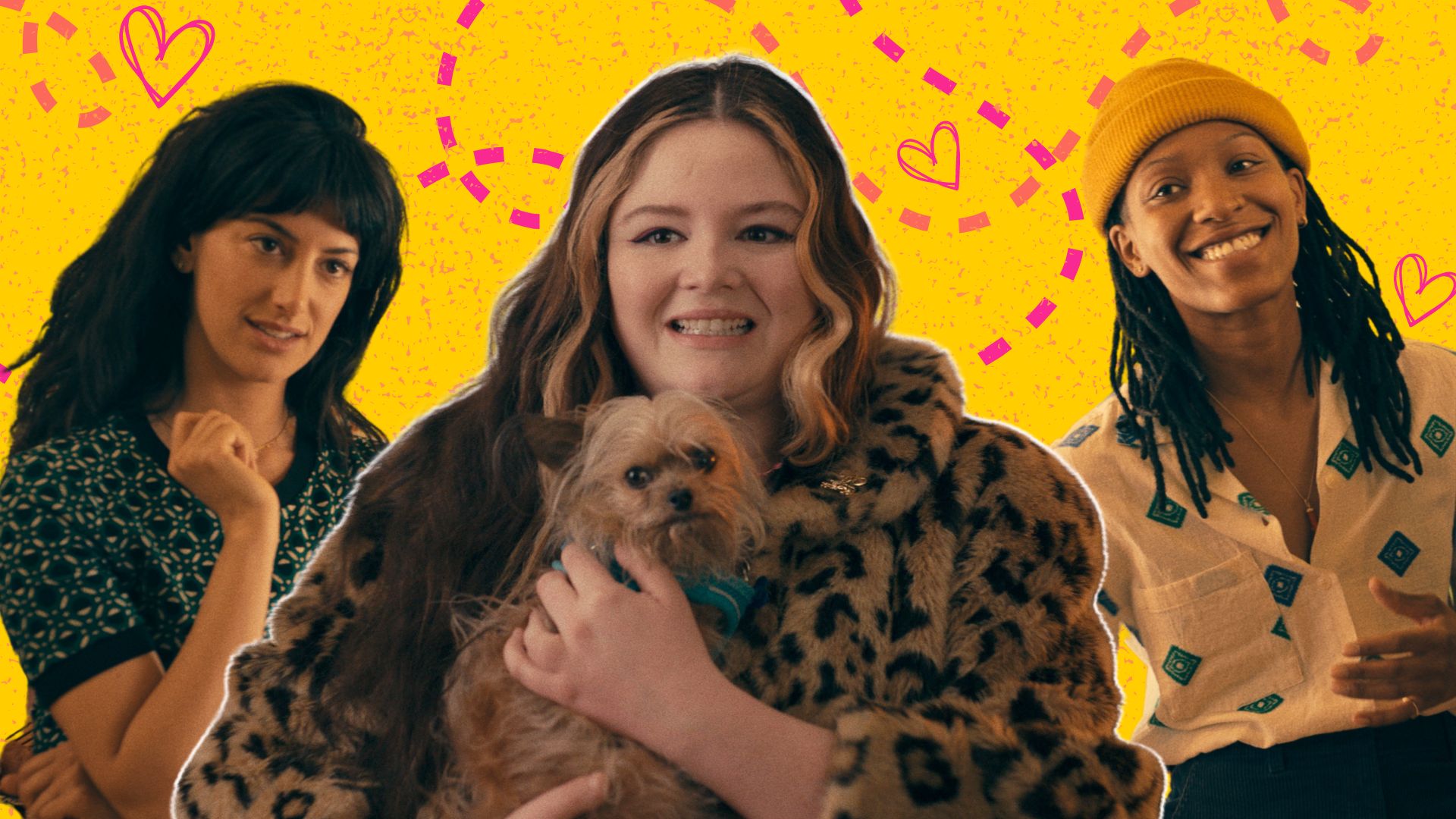

 Why you can trust Xtra
Why you can trust Xtra